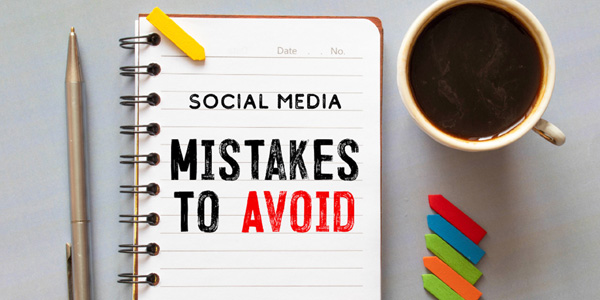
Page speed comprises one of the crucial components of search engine optimization as the business shifts online; optimization becomes an important part. It has been observed that 47% of the population expect the page to load in less than 2 seconds while another 43% of the population abandon the site if it takes more than 3 seconds to load. How fast the content loads on the website page is considered as page speed. Read on to learn how to improve website loading speed.
Much emphasis is laid on page loading speed as it affects the traffic directed to the website. The faster the page loads, the higher are the chances of customers staying on the page. In this article, let’s talk about what exactly is page speed and why it is essential to bring about page speed optimization.
What is Page Speed?
Popularly it has been observed that page speed is at times confused with ‘site speed.’ The amount of time it takes for the content to appear fully is considered page speed. It is also the page load time. Just like site speed, page speed also forms a critical part of search engine rankings. It’s important to improve website loading speed. Page speed adds numerous advantages to the overall performance of the website. It makes it as smooth as a knife through the butter and helps in user delight.
Techniques to Improve Page Speed
Since page speed is an essential part of search engine optimization, maintaining it is also equally essential. The faster the page loads, the more enhanced is the user experience. It also increases the chance of traffic conversion. The following are some of the techniques to follow to improve website loading speed and page speed:
Compress the files
One of the techniques to improve page speed is compressing the page’s files. There are various tools available that can be used for this purpose. Compressing the files reduces their size. The lesser the file’s size on the page, the time it takes to load the content will be automatically reduced.
Optimize the codes
Various codes are employed for page development. By optimizing the codes, i.e., by removing the comma, spaces, and other unnecessary characters, the page’s speed improves. These extra substances present on the page are unnecessary and not required and only hamper the page speed. Reducing them will improve page speed.
Reduce page redirects
Whenever a user sends a request to redirect a page, there is some time lag for processing. This reduces the loading time of the page. The more you reduce the number of redirects to the page, the page speed will improve. Including backlinks to the website in the pages also improves website loading speed as extra time is devoted to the backlinks’ response.
Work on server response time
The server response time is affected by several factors like the amount of traffic that is being directed to the site, resources which the page use, and at times the hosting solution that is employed. Reducing the server response time increases the speed of the page and hence should be worked upon.
Optimize the images
For reducing the size of the image files, Photoshop software is put to use. Also, one needs to ensure that the size of the image that is put up is also in the correct format. Ensuring the above two allows the heavy image files to load in less time, and hence the speed of the page is improved.
Content distribution network
To distribute a load of content delivered, the content distribution network functions to do so. Copies of the site are created and kept at geographically different data centers for the users to have faster access to your website.
How to check Page Load Time?
There are several tools available online which provide the scope of checking the page speed. The URL of the page has to be entered, and in an instant, the page speed is displayed. Once you get an idea of the page speed, you can work on improving it. As George Will puts it, “the pursuit of perfection often impedes improvement” it is through continuous evaluation of the page speed which can bring about improvements.
Keep checking the page speed now and then improvise it to reduce the page’s time to load. Sometimes the fault arises in the heavy content that makes up the page. Larger content size impedes the page speed. Hence work should be done to reduce the content size and improve website loading speed.
Why is Page Speed Optimization Important?
Broadly considering, there are two significant factors because of which page speed is considered necessary, which are as follows:
Search Engines
With the concept of search engine optimization, which prefers sites with good page speed, search engines rank them higher. It is even because users gain enhanced experience with good page speed. Good page speed is like a cherry to the pudding.
While both search engines and users are fond of good page speed, it becomes mandatory for an online business to maintain one. This is because here, the search engines are not only providing information and answers but even a worthwhile user experience.
A noteworthy line “You cannot settle for a page 2 or page 10 ranking. If you want to grow your business, you need a page one ranking, which demands a fast website.” One cannot settle in for page 2 or page 10 of search engine results. If the business has to flourish, it becomes essential to achieve page 1 results.
Research has shown that 75% of the users remain glued to the first page, and 80% of the clicks go in for the top three results shown on the first page.
For every part of the purchasing funnel, including the discovery, research, and finally buying a product, people depend on search engines. 95% of online experience begins with a search engine. Any business that intends to generate leads from its online services needs to go in for page speed optimization.
User Experience
Any user that intends to use an online service expects a fantastic user experience. Imagine a scenario where you have typed a query on the search engine, and you have to wait to view the results.
Won’t you be annoyed?
In this situation, most of the users abandon the site. The online business is negatively impacted. Faster sites are reported to have 15% higher chances of conversion.
The user experience has to be according to the wants and demands of the people. If users are provided with a fast and smooth experience, they are more likely to purchase from you. And not only this, a high-class user experience allows the customer to keep coming back to your website, i.e., you even win customer loyalty.
Does it make a difference?
Here let us consider an essential factor.
Does page speed optimization add value to my business?
In a study conducted by Amazon, they discovered that a time difference of 100ms- a unit that humans can’t perceive is enough to bring down their sales by 1%.
Every second counts when it comes to sales. And it won’t stop there.
How fast your page loads has a direct impact on organic search results and pay per click. Your competitors have invested in that critical area and won’t mind eating your part.
Hence, for every stage of your business, having a good page speed contributes a lot to your business’s overall performance.
Additionally, website speed influences visibility. The Mobile-first index is something recently launched by search engines.
Here the search engines have started ranking pages based on the speed at which the page loads on a mobile phone. The mobile version of the websites is given more preference than the desktop version.
It is essential to spend some time with your website to determine the speed and the overall user experience. Remember, it is you who can best analyze your website.
The tips and techniques mentioned above will help you maintain your website speed and improve search engine rankings.
The entire idea is to recognize the gaps that hinder your page speed. Working through the gaps will improve page speed. You may consider some of these as minor changes, but when it comes to your business’s success and healthy conversion, small steps taken towards it will have a more significant impact.
The entire effort is dedicated to the seamless performance of your website and generates traffic for your business.
Read More: Off-Page SEO: How does Off Page Optimization helps increase traffic?


